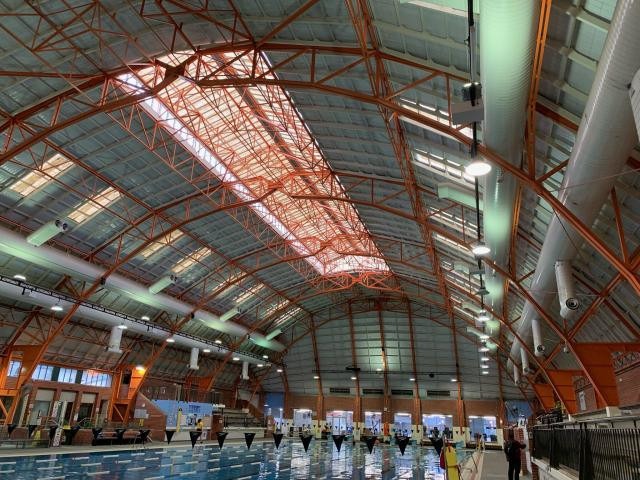
In early 2020 we undertook a case study for the City of Yarra for the Richmond Recreation Centre. We worked closely with their Sustainable Energy Officer Amna Abdallah. The aim of the exercise was to determine the viability and the cost of replacing their existing gas boiler and Cogen system with high efficiency Low Charge Ammonia heat pumps.
These heat pumps have been used in Europe and North America for similar applications however they have not been used in aquatic centres before now and they offer remarkable efficiency gains over gas systems.
Why heat pumps are so efficient
You may well have a few of these around the house already- your fridge is a heat pump, and if you have air conditioning then add another one to the list. Pool heat pumps are transferring heat from air or water to your pool water and to your pool air. However there is a lot more to their use in aquatic centres as they can be used for:
- Pool water heating
- Pool air heating
- Air conditioning in dry exercise spaces
- DHW heating
- Heat recovery from HVAC system using waste cold air
All of these functions are available as heat pumps are producing heat AND cold when they are operating. This has been a steep learning curve for councils as they have gas systems which have been the defacto standard for aquatic centres since their inception. Using heat pumps effectively requires a new way of thinking about the way energy can be used.
We measure the performance of heat pumps in the Coefficient of Performance or COP figure. A COP measures the ratio of electrical energy that is consumed (1) to the amount of heat/cold that is being produced. If you are using 1kW of electricity and you are getting 5kW of heat you have a COP of 5. The same equation works for cold produced from the heat pump so the two figures can be combined to give very high COPs.
Our report for the centre breaks down the existing energy usage (which is a combination of electricity and gas), turns this into a common measure of kWh and then compares this to the performance of a Low Charge Ammonia heat pump. In this way the council has an ‘apples to apples’ comparison to determine what sort of system will allow them to ‘go off gas’.
If you would like more information, you can download a copy of the report here.


